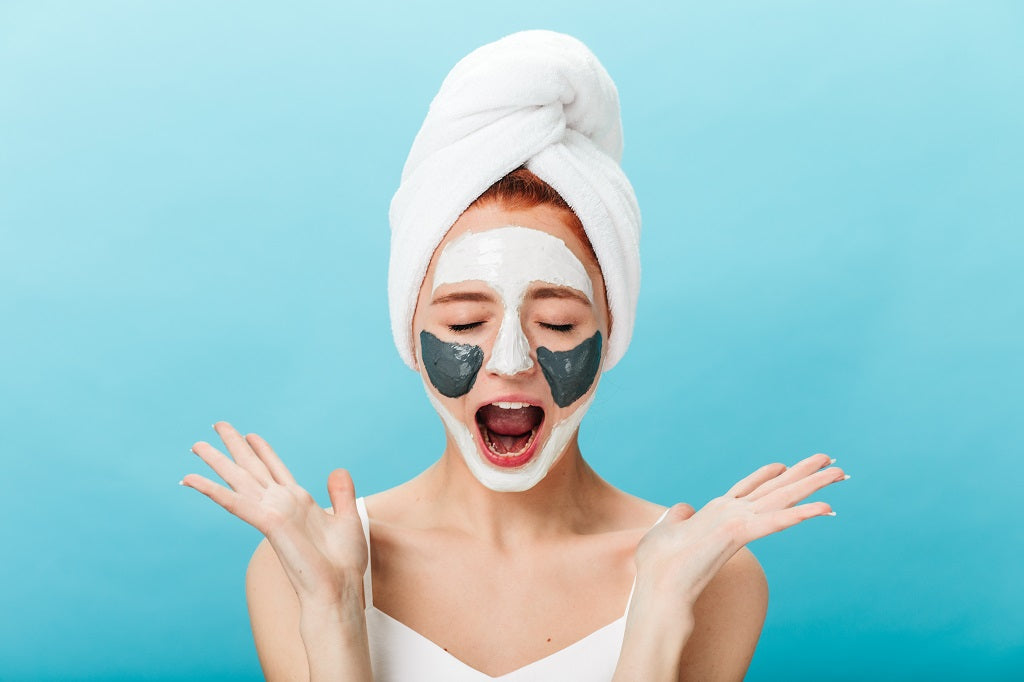Does BO bother you? Well, join the line! Body odor is a major turn-off, and if you too keep on smelling your underarms and have faced embarrassing situations because of being slightly stinky, well, you're not alone. Spending hours in the gym or working in the sweltering heat crank up perspiration; add to that synthetic clothing, and you might be emanating a funky smell. The average human body has about three to four million sweat glands, and while body odor is natural, you can always curb it.
Natural deodorants are the next big thing. With so much being said about chemical deodorants and their side effects, brands are coming up with natural alternatives that will keep us odor-free for hours at a stretch. People are complaining that natural deodorants don’t work for them. So let’s try to find out whether natural deos are a marketing gimmick, do they work, and are they worth the transition? Consumers are skeptical about whether natural deodorant can take care of your underarm issue? We spoke to the experts in the industry to find out the truth. Read on to get answers to all your questions.
What Is The Reason For Body Odour?
Body odor is generally associated with sweat. Sweating is a natural mechanism to regulate your body temperature. It’s not the sweat that causes body odor, but the bacteria that grows on the sweat gives a smell to your sweat.
There are millions of apocrine and eccrine glands in our body which secretes sweat to keep your body cool. Sweat glands are designed for this mechanism.
Also Read : Home Remedies and Preventive Tips to Get Rid of Body Odour
What Is The Difference Between An Antiperspirant And Deodorant?
When it comes to natural deodorants, we get mixed reactions from people. Let's go back to the basics before jumping to any conclusions. Let us try to understand the difference between antiperspirant and deodorant.
Both antiperspirant and deos serve the same purpose but work differently. Antiperspirants contain aluminum which masks body odour by blocking the sweat from expelling. Active ingredients in antiperspirants such as aluminum salts and propylene glycol stop the sweat glands from producing sweat. Deodorants, on the other hand, mask body odour by neutralizing the smell of the body.
Many people want to switch to natural deodorants because they feel that aluminum and other preservative found in antiperspirants can cause serious health issues. But as per experts, there is no scientific evidence that aluminum present in antiperspirant can be harmful to your health.
Is Natural Deodrant Actually Better For You?
Antiperspirants contain chemical aluminum, which can cause breast cancer- A myth that several skin care experts and dermatologists have busted. As per the studies, there is no such evidence that proves that antiperspirants are not good for your health. Experts say that antiperspirants are not harmful to your skin health, but the only disadvantage is that long-term usage increases your dependency on the product.
Meanwhile, several natural antiperspirant brands have come up, claiming they manufacture aluminum-free deodorants that are completely skin-friendly. These aluminium-free deodorants are made from clean and natural plant-mineral-based ingredients that fight body odour. Natural deodorants contain additives that seem healthier than conventional antiperspirant ingredients. However, the fact of the matter is that even natural antiperspirants may contain ingredients that can cause skin irritation. Therefore, choosing between natural deodorant and antiperspirant is a personal choice.
Are Natural Deodorants Good For Your Microbiome?
There is not enough evidence to support this. There were claims that regular deodorants and antiperspirants may disrupt or kill off the beneficial bacteria in the armpits, causing irritation, bumps, and overall poor skin health.
So the natural deodorant brands began marketing their product as microbiome friendly, which is not only safe for your skin but also masks the body odour by promoting the growth of some good bacteria. Natural deodorants have plant extracts, botanical and essential oils infused, so they are often endorsed as beneficial in maintaining skin health. But sometimes, these natural actives are potent enough to cause allergic reactions on the skin.
Experts claim that there is no link or evidence to prove that antiperspirants can deteriorate your skin health by disrupting the skin’s microbiome.
Also Read : So, What Exactly Is The Skin's Microbiome? Skin Simplified
Is Natural Deodrant Worth The Transition?
Most traditional antiperspirants contain aluminium and preservatives, which many of us want to avoid, but at the same time feel that natural deodorants are not working. The transition from conventional antiperspirant to natural antiperspirant can prove to be a meticulous task.
Many of us use natural deodorants for a few days and switch back to the traditional antiperspirants, saying it’s not working for them. According to holistic experts, natural deodorants are effective for everyone, but you must detox your body first. Your body needs to go through the mainstream detox so that you can successfully switch to natural deodorants.
Experts Explain Why Your Body Needs To Detox From Mainstream Deodorants?
When using mainstream deodorants, your body is prevented from sweating as the chemicals such as aluminium salts plugin the sweat glands. Your sweat smells when the bacteria break down the acids in the sweat. When you stop using an antiperspirant, it's like a pressure valve of the cooker is released, and your body which hasn't sweat in years begins to sweat again. Experts say that after switching to natural deodorants, the first few weeks might often be the smelliest time of your life as the body starts purging all chemicals, toxins from the body that had been plugged for so long. This is the time most people feel that natural deodorants are not working for them and switch back. However, if you keep going, by the 3rd or 4th week of using natural deodorant, you might realize that the body odour was temporary.
Expert Tips To Make Your Transition Phase Less Stinky
Experts recommend using a charcoal soap to wash your underarms and a vinegar-bentonite clay mask for your underarms which will help to expedite the whole process. Taking a hot water bath helps open up the pores, making purging toxins from the body easier. Avoid wearing tight-fitting clothes and increase water intake.
What To Look For In A Natural Deodorant?
According to experts, the best natural deodorant is that which masks the body odour without causing any negative impact on your skin. Look for natural active ingredients and odour neutralizing ingredients such as eucalyptus, saccharomyces ferment, kaolin clay. The best natural deodorant should have anti-bacterial properties as well. Look for natural skin-friendly ingredients with anti-bacterial properties such as lavender oil, tea tree oil, coconut oil, and skin-soothing ingredients such as beeswax, shea butter, and witch hazel.
ANVEYA BULGARIAN LAVENDER OIL, 100% PURE, 15ML
- Its floral scent is great for RELAXATION & CALM SLEEP
- Use for Healthy HAIR & DANDRUFF RELIEF
- FACE CARE: Anti-inflammatory properties help Acne and Scars.
- MASSAGE & AROMATHERAPY: natural soothing oil for mind and body
ANVEYA AUSTRALIAN TEA TREE OIL, 100% PURE, 15ML
- Works on ACNE, SCARS & PIGMENTATION due to its antibacterial and anti-inflammatory properties
- Application in treating SKIN, NAIL & TOE INFECTIONS
- Great for HAIR. Fights against DANDRUFF with its antifungal properties
- Diffuse for fresh & CLEAN HOME
It’s not that natural deodorants are ineffective, but it takes time to show the result as your body needs time to detox and regulate its body temperature. Once your body goes through the whole process of detoxing from the mainstream deodorant, you can successfully become a natural deodorant user..!!
Also Read : Why Are Natural Deodorants Becoming Increasingly Popular? Experts Explain The Hype Around It
Disclaimer: All the content on anveya.com/blogs is solely for information. It is not intended to be a substitute for professional medical advice, diagnosis or treatment. Always seek the advice of your physician or a qualified health care provider. The information, suggestion or remedies mentioned on this site are provided without warranty of any kind, whether express or implied.





